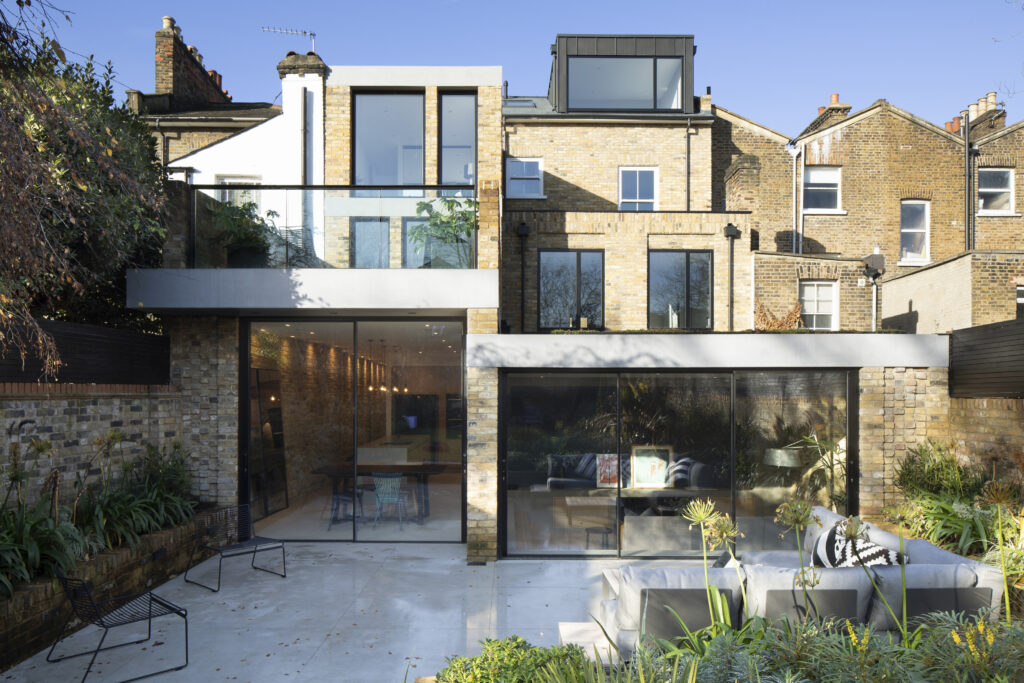17. Advantages of Developing your own Land
17.1. Benefits of developing your own land
Lewisham has a long history of ordinary people developing homes for themselves and their families, and the Council is keen to encourage this tradition to continue.
Depending on your appetite for getting your hands dirty, the level of your involvement in a development project is up to you. Existing homeowners with pockets of land which may be suitable for development can – with relative ease – self-develop to create a new home for themselves, for their family, or to sell.
It might seem a daunting prospect, but with the right design team to lead you through the project, self-build development can be immensely rewarding. Some of the benefits of self-build development include:
Control
Being the client, and being involved in managing the design and construction of a new home, allows you much more control over the end product. Your involvement will allow you to make the decisions that matter to you and the community in which you live.
You may be able to build a larger home – or even more homes – on a site that you already own, as you may accept shorter distances between the windows of habitable rooms than might be acceptable if that land is being developed by someone who doesn’t live nearby.
Quality
Having a long-term interest in the development could result in higher quality when compared with someone else who doesn’t have as much invested in the local area. This doesn’t mean that you have to be involved in every single decision, or manage every aspect of the project yourself; by appointing a good architect with local knowledge and experience of designing new homes and who can guide you through the whole process.
For example, developing to the highest levels of sustainability has a greater upfront cost, but can create more enjoyable spaces that cost far less to run and create savings in the long run.
Finance
The financial economy of developing yourself can also allow you to invest in the areas that matter to you, such as architectural style, environmental sustainability, or affordable housing.
Developing a new home for yourself will reduce costs when compared with purchasing a new-build dwelling elsewhere – and as the client you will have complete control over the brief, and able to create a home suited to your individual needs.
Similarly, developing yourself will be more profitable than selling your land to a developer.

17.2. Finding land on which to build
If you’re not lucky enough to already own a home with sufficient space around it to develop, you may want to consider finding land yourself on which to build.
Nothing can beat a wander around your neighbourhood to identify potential pockets of land which have yet to be developed. Using this document as a guide to the types of sites which are typically available in Lewisham, look for gaps between houses, disused garages and outbuildings and scraps of under-used space on which you might be able to fit a home.
Combining this with online research tools, such as Google Maps (www.google.com/maps) and the Land Registry (landregistry.gov.uk) you can, with relative ease, identify the owner of such sites and make a direct approach to see if they are interested in selling to you.
An alternative to this is to join one of the Community Land Trusts operating in Lewisham. The Council maintains a register of self-builders, and will be able to put you in touch with one of the community housing groups in the area, which you can see on their website.
17.3. Choosing the right consultants
When developing yourself it is important to get the right consultants in place to offer their experience and advice to you. Key amongst these is an architect who can work with you to understand and refine your brief and recommend other consultants that might be required.
Choosing the right architect is vital to ensuring that your project has the greatest chance of success. A good architect will be able to advise you on every aspect of the design and construction process: how to define your brief; how to design a home which suits your needs; what surveys, reports and specialist consultants you will need; how to navigate your project through the planning process; how to choose a main contractor and how to ensure that the project is completed on time and on budget.
Lewisham has many excellent architects with experience of designing and delivering award-winning residential development projects across the borough. Some of the best examples have been included within this document, together with contact details for each practice.
The Royal Institute of British Architects (RIBA) provides a “Find an Architect” service which can connect you to practices in your area. See www.architecture.com/find-an-architect for more details.
Fees for architects and other consultants vary depending on the practice and the type of project. As an outline figure, on small sites architects’ fees are typically around 15% of the total construction value of a project. Development is definitely a case of “you get what you pay for”, and it is almost certain that a good architect will more than pay for themselves in the added value they will bring to your project. In addition to the architect’s fees you should expect to pay a further 5%-10% for other consultants, surveys and planning fees.